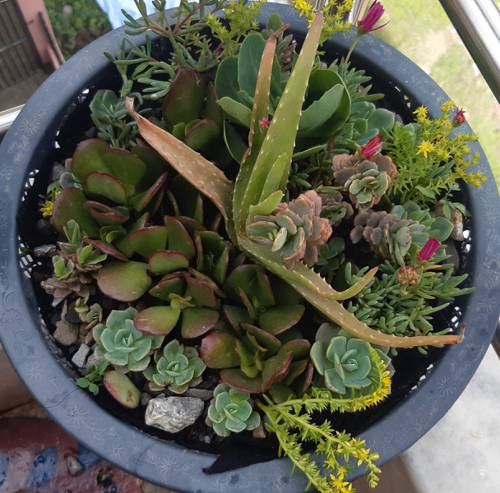
FAQ About Indoor Plant Antioxidant Properties

What are antioxidant properties in plants?
Antioxidant properties refer to the ability of certain compounds in plants to neutralize free radicals, which are unstable molecules that can cause cellular damage. These compounds help in preventing or slowing down oxidative stress in the body, which can lead to various health issues such as inflammation, aging, and chronic diseases.

How do indoor plants contribute to a healthy home environment?
Indoor plants enhance a home environment by improving air quality, reducing pollutants, and increasing humidity. Their antioxidant properties play a role in mitigating oxidative stress, thus contributing to the overall well-being of the inhabitants. Additionally, the presence of plants can improve mental health by reducing stress and promoting relaxation.

Which indoor plants are known for their antioxidant properties?
Some indoor plants known for their antioxidant properties include Aloe Vera, Snake Plant, and Boston Fern. These plants contain compounds that can neutralize free radicals and have been studied for their potential health benefits.

Can indoor plants improve air quality?
Yes, indoor plants can improve air quality by absorbing toxins, increasing humidity, and producing oxygen. Plants such as Peace Lily, Spider Plant, and English Ivy are particularly effective at filtering out common indoor air pollutants.

What health benefits can result from having indoor plants with antioxidant properties?
Indoor plants with antioxidant properties may offer several health benefits, including reduced risk of chronic diseases, improved immune response, and decreased stress levels. The phytochemicals in these plants help counteract oxidative stress and inflammation.

How does Aloe Vera contribute to indoor air quality and health?
Aloe Vera is known for its air-purifying qualities and ability to absorb carbon dioxide, benzene, and formaldehyde. It also contains antioxidant compounds like aloin and emodin, which can improve skin health and support healing processes.

Are there any studies supporting the health benefits of indoor plants?
Several studies have backed the health benefits of indoor plants, demonstrating improvements in mood and reductions in stress and anxiety. Research also supports their role in enhancing air quality by absorbing pollutants and increasing oxygen levels. However, further studies are needed to fully understand the breadth of these benefits.

What are free radicals, and why are they harmful?
Free radicals are unstable molecules that can damage cells, proteins, and DNA by oxidizing them. This oxidative stress is linked to aging and various diseases, including cancer, cardiovascular diseases, and neurodegenerative disorders. Antioxidants in plants help neutralize these radicals, reducing potential harm.

How does having plants indoors relate to psychological health?
Having plants indoors can positively affect psychological health by reducing stress, improving concentration, and enhancing mood. The presence of greenery and natural elements has been shown to create a calming atmosphere and contribute positively to mental well-being.

Can indoor plants with antioxidant properties help in skin care?
Yes, indoor plants like Aloe Vera and Lavender are beneficial for skin care due to their antioxidant and soothing properties. Aloe Vera, for instance, is known to hydrate the skin, heal wounds, and provide relief in cases of burns or cuts.

Why is Aloe Vera often cited for its health benefits?
Aloe Vera is often praised for its diverse health benefits, which include skin healing, anti-inflammatory properties, and digestive aid. Its high antioxidant content helps protect the body from oxidative damage, further enhancing its use in cosmetic and health products.

What role do antioxidants play in plant health?
In plants, antioxidants protect against oxidative damage caused by environmental stresses like pollution, UV radiation, and infection. They help in the repair of damaged cells, support growth, and ensure the plant's overall health and longevity.

Can indoor plant antioxidants replace dietary antioxidants?
While indoor plants provide a pleasant environment that can contribute to health, they cannot replace dietary antioxidants. It is crucial to consume a variety of fruits and vegetables to obtain sufficient antioxidants, as they are directly responsible for neutralizing free radicals inside the body.

What is the most effective way to care for indoor plants to maximize their benefits?
To maximize the benefits of indoor plants, ensure they receive adequate light, water, and nutrients. Regularly clean their leaves to facilitate better air filtration and inspect them for pests. Ensuring optimal growth conditions will enhance their capacity to improve air quality and provide antioxidant benefits.

Are there any common misconceptions about indoor plants and antioxidants?
A common misconception is that breathing near plants provides direct antioxidant benefits much like consuming them would. While plants positively affect indoor environments and well-being, antioxidants need to be ingested through diet for bodily health benefits.

Can pets benefit from indoor plants with antioxidant properties?
Plants like Chamomile can have a calming effect on pets, similar to their effects in humans. However, caution is needed as some plants, such as Pothos or Peace Lily, can be toxic if ingested. Always ensure the plants in homes with pets are non-toxic or placed out of their reach.

What are some easy-to-care-for indoor plants with antioxidant benefits?
Pothos and Spider Plants are easy-to-care-for indoor plants that also purify air. Aloe Vera requires little water and is known for its antioxidant properties. These plants are ideal for novice gardeners seeking health benefits without extensive maintenance needs.

How do Spider Plants improve indoor environments?
Spider Plants are excellent at filtering toxins like formaldehyde and carbon monoxide from the air. They are also effective in absorbing traces of formaldehyde. Their ease of care makes them a popular choice for improving indoor air quality.

How do you incorporate indoor plants into a home for maximum health benefits?
To maximize the health benefits of indoor plants, place them in areas where you spend the most time, like living rooms or workspaces. Grouping several plants together can enhance their air-purifying effects and create a more impactful green environment.

Is there a best time of year to introduce indoor plants for antioxidant benefits?
Indoor plants can be introduced at any time of the year, though spring and summer are ideal for their growth and acclimatization. During these seasons, plants receive ample sunlight and warmth, encouraging robust growth and maximizing their health benefits.
